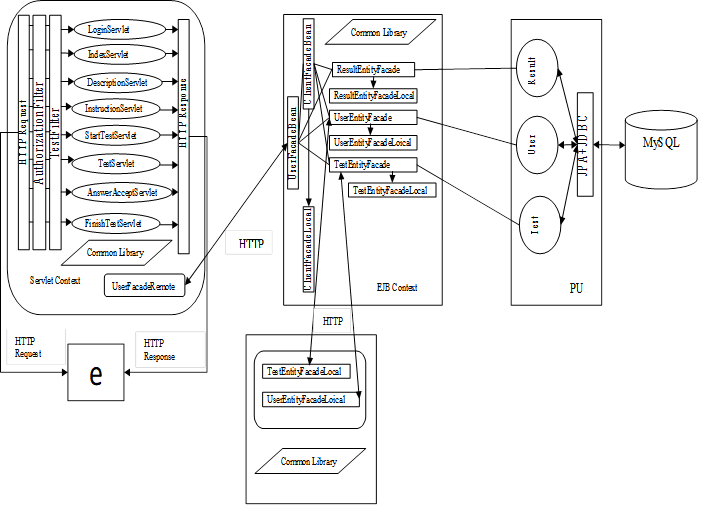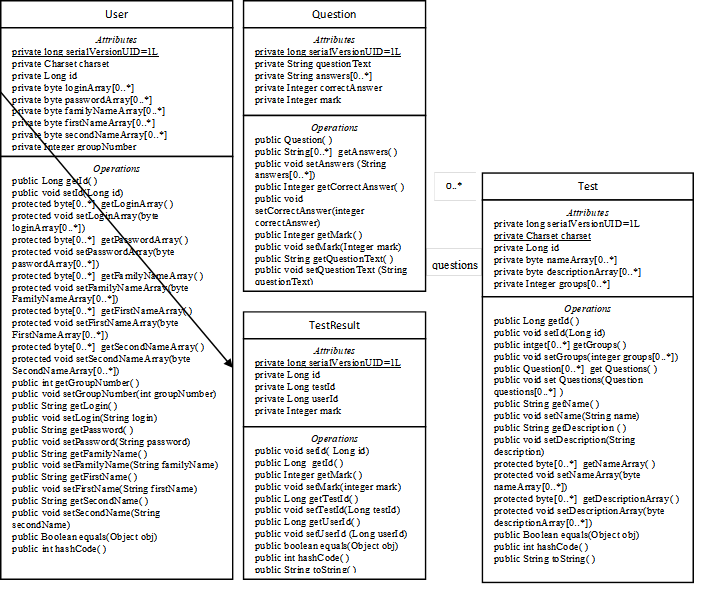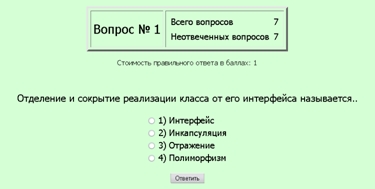Abstract
Nowadays smart technologies are actively introduced into all branches of the national economy in the Russian Federation. Formation of smart cities requires development of information technology, new approaches to their use and innovations in training of future experts. The article is devoted to one of the important aspects of smart education – development of evaluation tools of competences - a digital platform of smart remote testing. The basic notions are given, the problems of its implementation and the aspects of formation of the new smart society are considered. The importance of creation of smart remote testing is justified within the common information space of educational institutions of the Russian Federation, which will enable to use a uniform knowledge repository for evaluation of competences of students and organizations’ staff in the field of digital economy. Within the considered current developments and the analysis of national and foreign experience, it is offered to use the digital platform enabling to estimate remotely the competences of students and experts in various branches of digital economy. The general description of the digital platform is provided; the functional scheme and the operation algorithm are considered. The platform of smart remote testing is designed and developed with use of the most advanced technologies, libraries, development tools and visual modeling. Due to it, the platform is convenient, transparent, reliable and scalable.
Keywords: Citysmart educationcompetencesknowledgedigital transformationsmart remote testing
Introduction
Active development of digital technologies and formation of smart cities in the territory of the country establishes rules for the education system: smart cities need smart citizens.
Currently, there is growth of interest of the Government of the Russian Federation in development of digital economy. In the program "Digital Economy of the Russian Federation" great attention is paid to independent assessment of competences within the education system and labor market in conditions of digital economy.
According to this program, it is supposed to carry out research on development of competence models (relevant to interaction of business and education), individual competence profiles of citizens, development tendencies, and mechanisms of objective diagnostics of competences of digital economy.
A uniform repository will allow gaining necessary knowledge within the modern competency based model. Transition from e-learning to smart education is characterized by formation of a new doctrine – a teacher can implement individual approach to each student due to creation of conditions for access to necessary world training and scientific information materials. Formation of training courses will be simplified. By means of modern technologies it will be possible to create a training course from available repository modules for any requirements. Therefore, smart education is interactive, allowing generating knowledge in real time. Consequently, assessment of competences will be carried out on the basis of a uniform knowledge repository and the world education level. Tikhomirov, Dneprovskaya, & Yankovskaya (2015) believe that the role of higher education institutions changes, they materialize knowledge and become key players of the knowledge market.
Problem Statement
The latest information technologies are used nationwide. It provides development of cities and achievement of the necessary living standards of citizens. Modern cities are characterized by the growing population and the territory, complication of the infrastructure. Such important problems as increase in operating efficiency of public transport and decrease in traffic concentration, increase in infrastructure capacity, ensuring health and safety and improvement of ecological indicators, growth of quality of municipal services and acquiring access to them by all citizens, increase in civil liability are solved by means of new information technologies.
On the territory of the Russian Federation there is increase in quantity of the cities, which use "smart" technologies, for example Moscow (including suburbs, in particular, Novomoskovsk), St. Petersburg, Kazan, Sochi, Samara, Ulyanovsk, Yekaterinburg, etc. Their information and communication solutions promote improvement of quality, productivity and interactivity of city services, reduction in expenditures and resource exploitation, providing the dialogue between citizens and authorities. The implemented technologies promote management optimization of data flows and growth of response rate to inquiries. Such cities solve the arising problems quicker, providing the stable growth of living standards and their comfort.
The approaches to creation of smart cities, used in foreign and Russian literature, generally represent the structure consisting of the following components: smart economy, smart management, smart population, smart infrastructure, smart environment, smart transport, etc.
In this research we will focus on the component “smart population”. These are competent citizens, who are applying smart systems properly; they have the high level of professional qualification, general education, and culture.
The aspects of formation of the smart population include:
The population of these cities should quickly adapt to new technologies at the expense of additional education, and, as a rule, on the basis of individual retraining, which is impossible without determination of the competence level of the person at any time.
It is necessary to change the educational environment, its methods, tools and environment. General transition to smart education is essential. Timely assessment of competences requires existence of tools, determined by us as a digital platform of smart remote testing.
Research Questions
In consideration of foreign experience in development of smart education for smart cities, it is possible to indicate the project of the European education system – the United European University. The united dean's office will give an opportunity for students to transfer from one educational institution to another one without re-examinations. It will promote implementation of smart education along with a uniform general repository of training materials. The Korean experience is interesting: a student remotely masters training materials and asks specific questions to the teacher in class. On the ground of these examples, it is possible to note that smart training is based on remote and electronic learning. It allows carrying out joint educational activity in the Internet on the basis of general standards, agreements and technologies. According to Tikhomirov, Dneprovskaya, & Yankovskaya (2015), Barinova, (2017), Efimova, Papirovskaya & Efimova (2017), Hurlebaus, Asce, Stocks, & Ozbulut (2012), Jeong, Kim, & Yoo, (2013), Merzon, & Ibatullin (2016), Zhu, Yu, & Riezebos, (2016) it is about joint creation and use of the content, coeducation.
Purpose of the Study
The research goal is to give recommendations for optimization of smart education (there is a system for smart remote testing of students with the use of a uniform knowledge repository). Currently the analysis, the basic concepts of smart education and also their interrelation is carried out rather fully in works of Dneprovskaya, Yankovskaya, & Shevtsova (2015). A number of studies is devoted to some systems and offers relating to smart education, features of implementation (Dong & Jong, 2013). The founder of the concept “smart” was Drucker (1954), who applied it in his work “The Practice of Management”.
The practical relevance of the research consists in a possibility for use of its results at large-scale implementation of smart education technologies (Štuikys, 2015).
Research Methods
Nowadays a number of professions presupposes use of remote access. The practice of work in several places, among various employers is also widespread. Consequently, smart work will be the consequence of smart education (Smart Technology based Education and Training, 2014).
Usually a potential employer starts to train second or third-year students, providing them with training places in the company, teaching them to work with their own software products. The leading IT-companies of the Russian Federation provide higher education institutions with tutorial versions of their pilot projects for training, creation of their own advanced software products (for example, Integra-S in Samara). The offered means actively promote formation of smart cities as they refer to intellectual technologies of transport processes, health and safety, design of smart buildings, etc. The 1C company also actively works with students.
It is possible to use as an example the Kuibyshev railroad –the branch of JSC “RZD”, where experts tell students – future employees – about the used ERP-systems (the uniform corporate automated control system for finance and resources – EK ASUFR, for control of labor resources – EK ASUTR), control systems for cargo transportation (an electronic consignment note – ETRAN, electronic trading platforms, etc.), control systems for passenger traffic (for example, ASU Express), movement control systems (the automated system of operational management of transportations – ASOUP, etc.). A big number of software products were developed by young specialists of the company. For example, there was conducted automation of manual operations on events of the monitoring system IBM Tivoli Monitoring. The results of this work can be applied in smart technologies for smart education.
The general operation algorithm:
The IS administrator sets the rules in the data basis through the web-interface.
In the modern conditions the distributed portable information systems with the web interface ("thin client") are in great demand.
Within this research, we will consider the features of creation of the digital platform of smart remote testing for any training program.
The digital platform consists of three independent levels. The first layer - work with the data basis and business logic if the system (authorization, access rights and etc.) – is implemented in the form of the EJB components. The second layer – web-interface – for users. And the third one –thin client – for the system administrator.
The projects of such level belong to the industrial category (Enterprise Applications), technologies and frames are developed and improved for their creation for a long time. The applications, which are formed with the use of Enterprise-technologies, are more reliable, protected, safe; they require less time for development. Eventually, it best meets the requirements of the market– the best quality for smaller time and cost.
The created digital platform of smart remote testing is designed and developed with use of the most advanced technologies, libraries, development tools and visual modeling. Due to it, the platform is convenient, transparent, reliable and scalable. Therefore, its use in the framework of smart education is quite justified.
The interface of the system provides the user with the following opportunities:
The user web-interface is realized with use of servlets and filters. The interface is simple and functional, it is convenient to work with it.
Prior to initiating work with the system, a user undergoes the authorization process, then he gets acquainted with the instruction for test execution, that is why transition to the test is possible only from the page with instructions. The user decides himself when finish the testing. When he answered all the questions, he can return and change the answer to any question. The quantity of questions in the test can be big, that is why except simple references for navigation like "to the following question" or "to the last question", there should be a possibility for transition to any question, regardless of whether the answer is given or not. The user solves himself when and what question to answer, but when he gives the answer to a question, the system automatically offers him the following question.
An unauthorized user has access only to the page with the authorization form.
If a user started the test, he has no access to other pages – only to those, which are necessary for the answer, view of questions, navigation, and completion of the test.
In case of emergence of controlled exclusive situations, there are displayed short and clear messages.
The functional scheme of the digital platform is provided in figure

The semantic analysis was carried out for determination of the main objects, subjects and actions composing the testing process.
The user enters the website, log in, checks the list of tests, chooses the test, checks the description of the test, starts the test, reads the instruction, reads a question, reads possible answers, chooses a possible answer, answers to the question, transfers to another question, moves to any question according to its number. The system keeps account of the user’s answers, checks the correctness of answers, puts down a mark in points and saves the result, consequently, it is the class User. In the process of authorizing the class, User will include password and login. The class Test, the description of the test consists of attributes of the class and the description line. The class Question, variants of answers – the numbered string list in the class Question. The number of the question – the class Test - contains the numbered list of objects of the class Question. The class Result, its attribute is mark. Having specified and applied the used information, we receive the object data model of the system (figure

Findings
After authorization in the system, the user is offered to choose one of three possible actions: view of the test description, view the test results, start of the test.
If the user decides to pass a test and chooses the corresponding reference, then he will see the page with the instruction for test execution. If the user wants to return to the page with the list of tests, he can just follow the link provided for this purpose: to move to test execution, having clicked the link "start the test". The view of the page with the first question is shown in figure

As the user gives answers to the questions, below there will be references to the answered questions on the left, and the number of references to unanswered questions will decrease. If the user has already given the answer to this question, his answer will be highlighted in the list of answers.
There is the certificate of state registration of the program for ECM №2008614625 (the authors – Efimova Tatiana Borisovna, Fontanenko Vasilii Georgievich, the holder of the right–Samara State Transport University).
Conclusion
In view of the foregoing, it is possible to note that technologies of smart education, its development trends and features are special for each country, but in all cases, they will lead to satisfaction of needs of the digital society. Flexible, adapted, mobile, continuous training and testing focused on a specific individual will become possible due to smart education. The new digital platform of smart remote testing will enable to estimate effectively new competences, which are necessary in digital economy, to promote an individual training path of experts.
Smart remote testing will strengthen connection of students, educational institutions and production. Besides, the result of training directly depending on the organization of the current knowledge control will promote the best formation of professional skills.
Undoubtedly, the process of replacement of classical training for smart one will be slow. It will require a large number of innovations, but it is necessary to understand that these changes will allow future experts to develop actively, forming creative potential.
Acknowledgments
Fontanenko Vasilii Georgievich –the diploma student of T.B. Efimova, for co-authorship in development of the program product.
References
- Barinova, К.V. (2017). Formation of universal of training actions by means of smart technologies in the context of dialogic paradigm of foreign education. Innovation Projects And Programs In Education, 3, 40-46.
- Dneprovskaya, N.V., Yankovskaya Е.А., & Shevtsova I.V. (2015). Conceptual basis of the concept of smart-education. Open education, 6(113), 43-51.
- Dong, U.I., & Jong, O.L. (2013). Mission-type Education Programs with Smart Device Facilitating. International Journal of Multimedia and Ubiquitous Engineering, 8(2), 81-88
- Efimova, Т.B., Papirovskaya L.I., & Efimova A.A. (2017). Automation of manual operations on events of the monitoring system IBM Tivoli Monitoring. Vestnik Of the Volga Transport, 2(62), 46-53.
- Hurlebaus, S., Asce, M., Stocks, T., & Ozbulut, O. (2012). Smart structures in engineering education. Journal of Professional Issues in Engineering Education and Practice,138, 86-94
- Jeong, J-S, Kim, M., & Yoo, K-H. (2013). A Content Oriented Smart Education System based on Cloud Computing//International Journal of Multimedia and Ubiquitous Engineering, 8 (6), 313–328. DOI:
- Merzon, E. E., & Ibatullin R. R. (2016). Architecture of smart learning courses in higher education. In A. Adamov (Ed.), Application of Information and Communication Technologies (AICT): Proceedings of 10th International Conference (рр. 755-758). Piscataway: Institute of Electrical and Electronics Engineers Inc.
- Smart Technology based Education and Training (2014). Smart Digital Futures. Netherland: Amsterdam: IOS Press BV.
- Tikhomirov, V., Dneprovskaya, N., & Yankovskaya, E. (2015). Development of university’s web-services // Smart innovation, systems and technologies, 41, 265–271.
- Štuikys, V. (2015). Smart Learning Objects for Smart Education in Computer Science. Cham: Springer.
- Zhu, Z., Yu, M., & Riezebos, P. (2016). A research framework of smart education. Smart Learning Environments, 3 (4). DOI: 10.1186/s40561-016-0026-2.
Copyright information

This work is licensed under a Creative Commons Attribution-NonCommercial-NoDerivatives 4.0 International License.
About this article
Publication Date
20 March 2019
Article Doi
eBook ISBN
978-1-80296-056-3
Publisher
Future Academy
Volume
57
Print ISBN (optional)
-
Edition Number
1st Edition
Pages
1-1887
Subjects
Business, business ethics, social responsibility, innovation, ethical issues, scientific developments, technological developments
Cite this article as:
Efimova, T., Pogorelova, E., & Sakova, T. (2019). Evaluation Tools Of Competences In Digital Economy: Creation And Development Prospects. In V. Mantulenko (Ed.), Global Challenges and Prospects of the Modern Economic Development, vol 57. European Proceedings of Social and Behavioural Sciences (pp. 597-605). Future Academy. https://doi.org/10.15405/epsbs.2019.03.59

